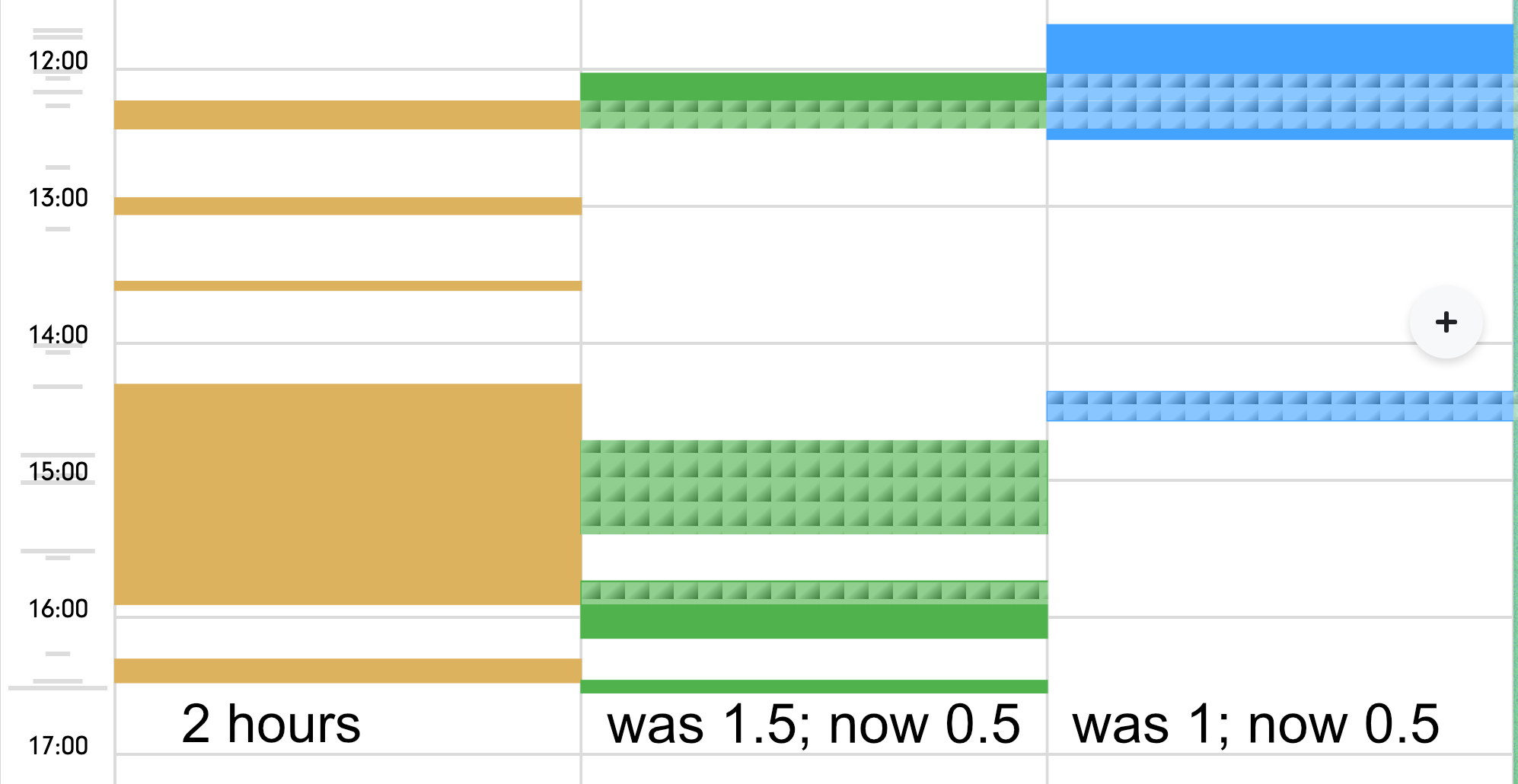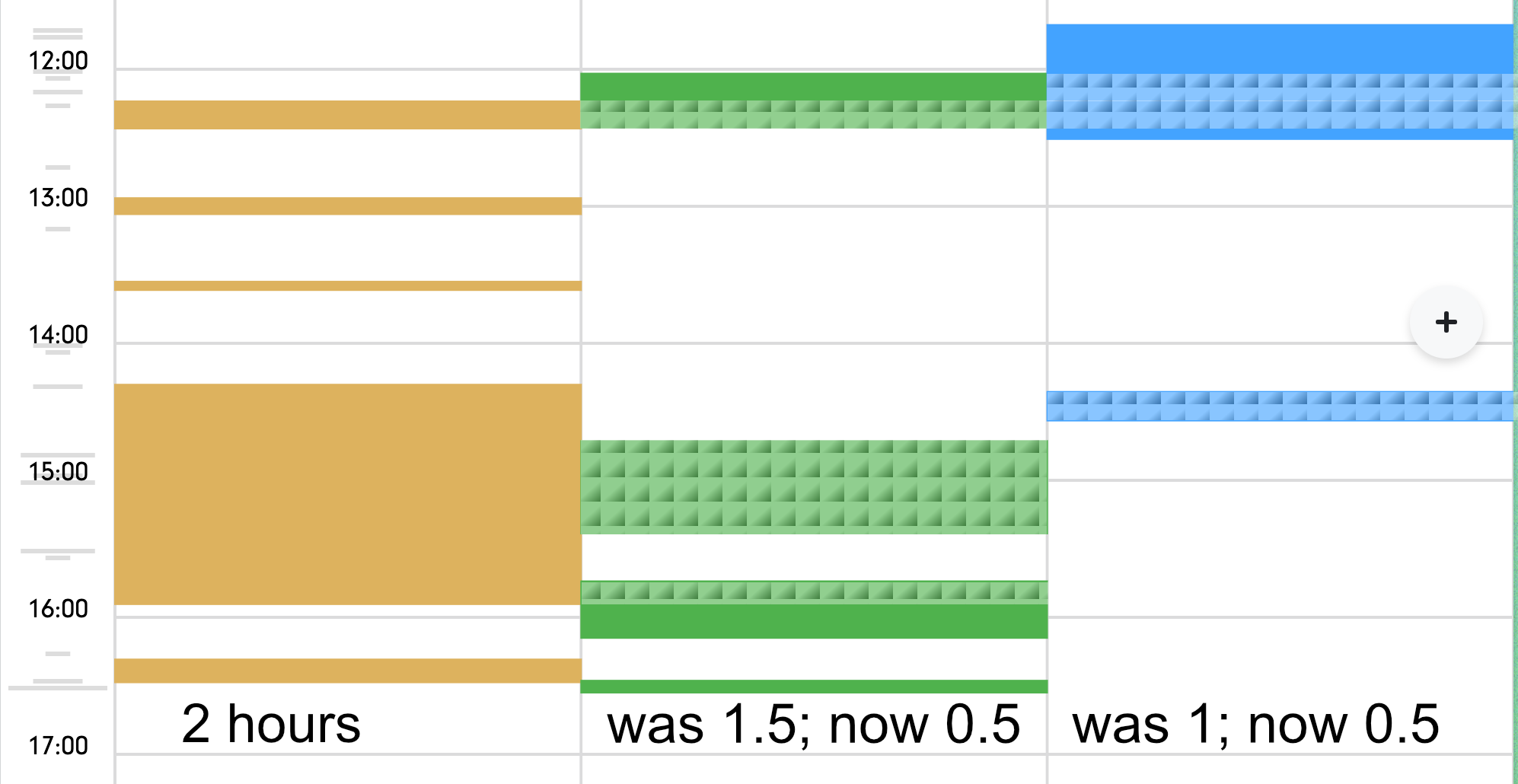A new approach to multi-attribution (aka “double billing”)
Paul Doerwald • November 19, 2024

This feature has been launched. Our August 2025 blog post Introducing Single Attribution: Finer Control Over Billing announces the feature.
I’m looking for your feedback!
People often complain about how Clockk makes it too easy to double bill their clients. In fact, I think it’s one of the big reasons we lose customers.
I have an idea for how to change this, but I’d like your feedback before I do.
Why things are the way they are
Clockk doesn’t “track” time. It “stacks” time. As you probably know, this causes what we call multi-attribution but you probably call “double billing”.
I’ve always told people that Clockk is “ethically neutral” about double billing. Unlike a lot of tools, Clockk makes it easy to double bill, on the assumption that you, the user, will correct any instances of double billing. This is easily done by resizing and deleting blocks of time.
Fundamentally, the problem is that if Clockk tracks you on 2 projects (A and B) at the same time, there’s no way for Clockk to know which project you’re actually working on. Instead of deciding for you, Clockk shows you what it tracked, and lets you make the decision about what to keep.
This means that by default you might bill 3 hours when you only worked 2, and one of your clients is paying for time they didn’t benefit from. Users sometimes see this as Clockk being unethical.
The new way (maybe)
What if by default (easily changed), Clockk only billed the left-most project if there was any overlap? (remember, the left-most project is the one that has the most time).
Take a look at the mock-up below. Does it make sense to you? Assuming it does, how would you feel about that behaviour?

If you wanted to double-bill (because there are legitimate reasons), you would still have the same option as before to resize blocks to adjust your billable time.
What do you think?
Please let me know what you think. Your feedback is how we make Clockk the best AI-powered time tracker for professional services!
Ready to save time and find unbilled hours? Get Started